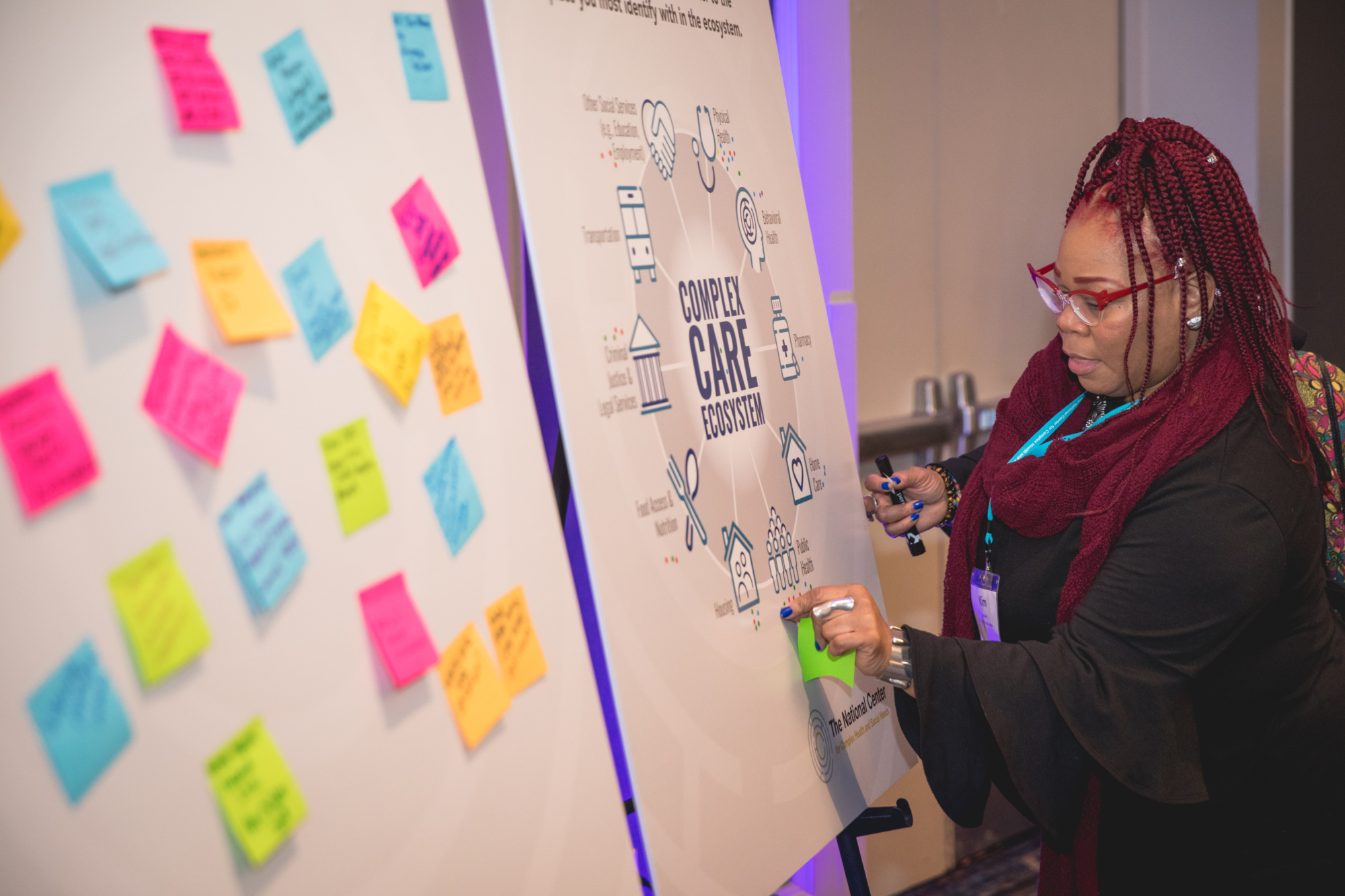Complex care core competencies: Developing the frontline workforce
Building the complex care field Education & training Workforce development
It addresses root causes of poor health through interdisciplinary care teams and cross-sector partnerships that deliver person-centered care based around participants’ own goals and priorities. These root causes extend beyond physical health and well-being to include social determinants of health including poverty, trauma, housing and/or food insecurity, and lack of access to care.
This diverse group includes individuals with multiple chronic physical and behavioral health conditions who often face social barriers such as homelessness and unstable housing, food insecurity, and/or lack of transportation. The group also includes frail, elder adults and people with serious illness.
Our existing care systems — including healthcare, social services, legal and criminal justice, and more — and workforce are not equipped to provide the time and attention necessary to build trusting relationships and support individuals dealing with multiple intersecting health and social challenges in meeting their needs, values, and preferences. Clinical care often focuses on the immediate clinical issues patients present with, and fails to address and/or account for the social and economic drivers of health.
In addition, individuals’ chronic health conditions and social barriers are often, but not always, exacerbated by systemic inequities such as racism, ableism, ageism, and poverty.
Individuals with complex needs often encounter:
Complex care initiatives often focus on specific groups — or subpopulations — of individuals that share one or more major medical, behavioral, and/or social drivers, such as:
Collectively, these overlapping subpopulations are connected by the fact that the current systems of health are failing to meet their needs.
In the US, our systems of care — which include healthcare, public health, social care, housing, education, and more — typically address an individual’s single need in isolation and are not designed to work together to meet multiple needs simultaneously. For individuals with the most complex health and social needs, lack of coordinated access to physical, behavioral, and social services results in poor health outcomes and the use of expensive services.
To see different results we must deliver care differently. Care must be:
By improving care for those currently falling through the cracks of our fragmented systems and encouraging health systems and payers to share power with community organizations, a complex care approach can help achieve health equity in the US.
Complex care programs seek to help people with complex needs identify and meet their own health and well-being goals by coordinating access to a wide range of services and supports, and by building individual self-efficacy. Doing so ultimately reduces costs linked to avoidable healthcare utilization and advances health equity.
A complex care approach identifies and documents where and who the existing delivery system fails to adequately serve and seeks to build interdependent ecosystems of care to meet both the immediate and long-term needs of these populations and the community at-large.
The National Center for Complex Health and Social Needs serves as a professional home for the growing field of complex care. Want to learn more? Read our Blueprint for Complex Care.
Building the complex care field Education & training Workforce development


